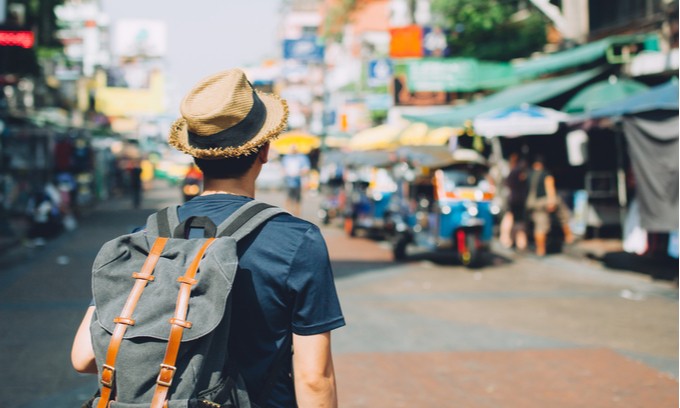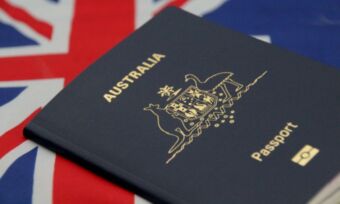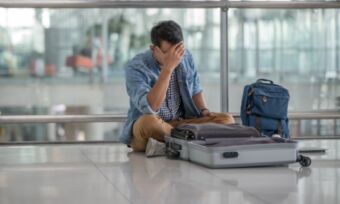What is the best insurance for backpackers?
The best travel insurance for backpackers will depend on what you want to be covered for, as well as factors like where you’re travelling, how long you’re travelling for and what activities you plan to do on your trip. There are two main types of travel insurance to choose from: basic and comprehensive.
There are also some specialised ‘backpacker travel insurance policies’. These products are typically similar to basic travel insurance, but may also have the option of adding cover for higher-risk activities.
If you’re travelling within Australia, providers also offer domestic travel insurance. These policies don’t include medical cover but can include cover for situations like cancellations and lost, stolen or damaged belongings.
What is the difference between a basic and comprehensive policy?
Basic cover is the cheapest option as it provides a lower level of coverage. Basic policies typically cover overseas emergency medical assistance and medical and hospital expenses. According to Smartraveller, basic cover can be a popular choice for backpackers and budget travellers. It’s generally for people who travel light without expensive items and who want a lower premium.
Comprehensive cover offers a higher level of coverage and is more expensive. In addition to covering medical and hospital expenses, it typically also covers things like cancellation costs, lost, stolen or damaged luggage or personal effects, legal liability and repatriation. If you intend to drive while on your travels, some policies also include rental vehicle excess cover.
Some policies also offer cover for higher-risk activities, such as driving a motorbike or moped, snow sports and adventure activities like scuba diving and rock climbing. This is generally offered as an optional extra, meaning you will have to pay more for this cover. It’s important to note that some policies will include this type of coverage as a standard inclusion, rather than an optional extra. What is and isn’t covered depends on the specific travel insurance policy you take out though, so it can be a good idea to read the Product Disclosure Statement (PDS) and Target Market Determination (TMD) documents before making a purchase.
What should backpackers consider when purchasing travel insurance?
The best backpacker travel insurance for you will depend on your needs and situation. When purchasing travel insurance, it’s worth considering the level of coverage provided by the policy, including any medical, cancellation and luggage cover.
“The dollar amount of cover is one thing, but make sure to be across the exclusions and any conditions that may apply to what is covered under the policy,” Mr Watson advised.
“When travelling be sure to share your travel insurance details with family or friends, so someone has access to those details. Also be sure to get in contact with your insurer as soon as possible, if you intend to make a claim, particularly if it’s a medical claim.”
When choosing travel insurance, some other questions to ask yourself include:
- Where are you travelling to? Check whether Australia has reciprocal health agreements with the countries you are travelling to. This could help cover the cost of medically necessary care, but it may not cover everything. Depending on where you’re travelling, healthcare systems and facilities can differ dramatically and the medical expenses you incur could be considerably higher.
- What time of year is it? Annual weather conditions, such as visiting during cyclone or monsoon season, could increase the risk of injury or damage while backpacking in the area. It may also impact the activities you take part in, such as hiking, skiing or surfing.
- What activities will you participate in while there? Check whether the policy offers cover for the activities you want to do. More risky activities may only be covered at an extra cost.
- How long will you be travelling for? If you plan on travelling indefinitely, some providers may offer more flexible options and allow you to extend your policy. These policies are often known as one-way travel insurance. If you plan to take a few trips throughout the year, you could also consider a multi-trip policy.
- Do you get 24/7 claims and customer service? If you’re travelling far from home, there’s a decent chance that if something happens, it will be outside of Australian business hours. Consider checking whether your provider offers a 24-hour helpline or other support service. This can be especially helpful if you’re in a non-english speaking country and you don’t speak the native language.
- Can you get a deal? Some providers offer discounts, such as for being a student or buying your policy online, which could help you save. But do remember to assess the quality of the policy as a whole, including its coverage, limits and exclusions.
If you do decide to get travel insurance for your trip, make sure you know what you’re covered for. It’s also a good idea to keep a copy of your policy document handy while you’re travelling, just in case you need to make a claim.

































 As Canstar’s Group Manager, Research, Ratings & Product Data, Josh Sale is responsible for the methodology and delivery of Canstar’s Travel Insurance Star Ratings. With tertiary qualifications in economics and finance, Josh has worked behind the scenes for the last five years to develop Star Ratings and Awards that help connect consumers with the right product for them.
As Canstar’s Group Manager, Research, Ratings & Product Data, Josh Sale is responsible for the methodology and delivery of Canstar’s Travel Insurance Star Ratings. With tertiary qualifications in economics and finance, Josh has worked behind the scenes for the last five years to develop Star Ratings and Awards that help connect consumers with the right product for them.






